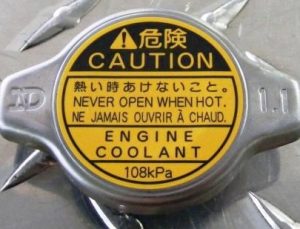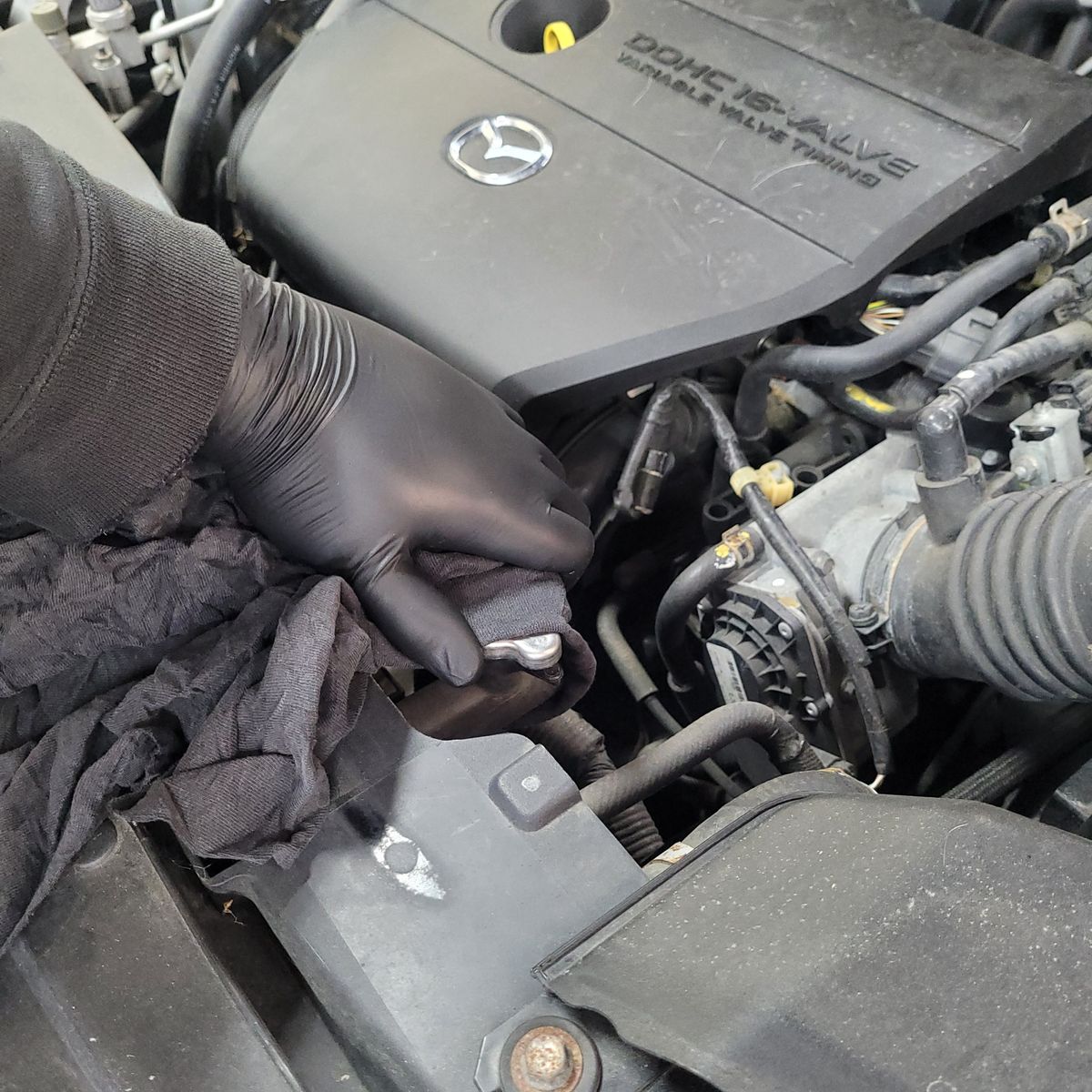What does the radiator cap do?

The radiator cap is a small, but important part of your car’s cooling system. When your engine’s coolant reaches high temperatures, it expands and becomes pressurised. Pressurizing the engine coolant means that the engine coolant will boil at a higher temperature meaning your engine can run slightly hotter. Therefore engine radiator caps often have pressure ratings.
The radiator cap also acts as a release valve set to open at the maximum engine coolant pressure point.
When engine coolant pressure reaches this level, the radiator cap valve is forced open. This results in the engine coolant overflow into radiator expansion tank(s) located to the side of the radiator. The engine coolant remains in the expansion tank until it reaches a lower temperature and is drawn back into the radiator. From here, it continues to flow around your engine, allowing for correct engine temperature at all times.
Learn more about how the radiator cap works >
Warning: Never open the radiator cap when the car is still hot. The built-up release of pressure can mean that the engine coolant will boil when the radiator cap pressure is released and this can cause burns and serious injury. Wait around an hour for your car to cool down before carefully removing and inspecting the radiator cap.
Symptoms of a bad radiator pressure cap:
Radiator cap rubber seals damaged – the most obvious visual symptom of a damaged radiator cap is if the rubber seals on the boom of the engine radiator cap are distorted, out of round, split or in someway damaged. In any of these cases you should immediately get your a new radiator cap.
Rust on valve part of radiator cap – if your engines cooling system and radiator have rusty water or the radiator core tubes / holes have brown crusty looking rust on them, then it is likely the engines radiator cap will also have rust around the radiator cap valve and rubber seals. If this is the case you will new to replace your radiator cap with the new one.
Radiator cap wont hold pressure – your local auto repair garage / workshop should have a radiator cap pressure testing tool, where they can test if the radiator cap can hold the correct amount of pressure. If it doesn’t then you will need a new radiator cap, designed for your cars engine cooling system.
Coolant leaks – If the radiator cap valve becomes stuck closed, coolant will not be able to escape. This can cause the pressure to build up, resulting in the radiator or heater hoses splitting or bursting and leaking hot engine coolant. Coolant leaks will usually appear under your engine bay, and be a green, orange or blue colour. If your cars heater core develops a leak, you could also see green, orange or blue colored fluid inside your car by the drivers or passengers feet.
Overheating – A faulty radiator cap can result in your engine overheating. If too much coolant leaks out, the engine will not be able to cool itself as effectively, resulting in higher engine temperatures. When your engine overheats, we recommend that you stop driving as soon as possible. This is because overheating can seriously damage engine components very quickly.
Physical damage to car radiator and heater hoses – When you examine your cooling system, you may notice that the hoses are damaged. Common signs of damage in the radiator hoses include swollen hoses, bulges, splits, cracks and leaks. Sometimes car engine radiator and car heater hose damage can be attributed to high cooling system pressures and temperatures. A faulty / closed /stuck radiator cap valve can lead to these higher than normal pressure and car radiator and car heater hose damage.
New Engine Radiator Cap & Pressure Testing in Hamilton
Is your car’s radiator cap in need of a replacement? If so, we can help!
At Grimmer Motors, we can remove, pressure test and replace your radiator cap (if needed), reducing the risks of coolant leaks or engine overheating. We can also diagnose and repair all sorts of cooling system issues. Related services we offer include:
For all your cooling system repairs in Hamilton, from qualified and skilled mechanics contact Grimmer Motors today!

